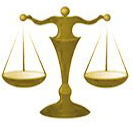Let’s start with the law that deals with the broad scope of disclosure under what is called the CPLR (Civil Practice Laws and Rules of New York.) Expert disclosure is under this provision and requires that attorneys who have retained an expert witness to be used at trial, be they an Expert Engineer or an Expert Doctor or some other expert for a personal injury negligence or medical malpractice action due to surgery or hospital negligence come under the provision Paragraph CPLR 3101 subsection (d) now the law:
Ҥ 3101. Scope of disclosure
(a) Generally. There shall be full disclosure of all matter material and necessary in the prosecution or defense of an action, regardless of the burden of proof, by:
(1) a party, or the officer, director, member, agent or employee of a party;
(2) a person who possessed a cause of action or defense asserted in the action;
(3) a person about to depart from the state, or without the state, or residing at a greater distance from the place oftrial than one hundred miles, or so sick or infirm as to afford reasonable grounds of belief that he or she will not be able to attend the trial, or a person authorized to practice medicine, dentistry or podiatry who has provided medical, dental or podiatric care or diagnosis to the party demanding disclosure, or who has been retained by such party as an expert witness; and
(4) any other person, upon notice stating the circumstances or reasons such disclosure is sought or required.
(b) Privileged matter. Upon objection by a person entitled to assert the privilege, privileged matter shall not be obtainable.
© Attorney’s work product. The work product of an attorney shall not be obtainable.
(d) Trial preparation.”
Generally early on in litigation in preparation and anticipation of trial, there is a demand made by the Defendant and the Plaintiff for what is called Expert Disclosure or Discovery. This is a demand that before trial there be disclosure of the expert that the party expects to produce as their expert witness at trial.
Part of this disclosure requires that the attorney disclosure in reasonable detail the subject matter on which each expert is expected to testify, what their expert report says or simply a copy of the expert report, which is also annexed to this CPLR 3101 (d) exchange, and this report can include the facts and opinions and the qualifications of the expert, which is usually included in a separate curriculum vitae (just a fancy name for resume.) This resume should also include a list of publications that may actually contradict the testimony of an expert witness and be useful for impeachment.
An expert to testify must have specialized knowledge, experience, education or training. It should be noted specialized experience does not necessarily have to come from a college or institution of advanced learning, it may be a police officer who has no more than a High School Diploma, but 20 years on the force investigating homicides.
The idea is that the Courts look to what will paint a truer picture for the jury, and not be sham science. An expert opinion may have to be based on a proven scientific principle or industry standard. The case law is broad in this respect and legal tests have been developed to determine who is a qualified expert.
Often the best expert witness in a case of personal injury or medical malpractice is a treating doctor. A treating doctor has much more credibility that a doctor who has conducted what is called an IME of the injured Plaintiff. I believe in an earlier blog I stated that there is nothing independent about this exam which the person suing must undergo. If you have a treating doctor as opposed to an IME doctor the IME doctor is far more impeachable at trial, and the treating doctor should have far more sway with a jury because they come across as the more credible person.
Once you put your medical condition into controversy because of a law suit all your medical, emotionally related records, including psychiatric records come in at trial. If it is related to your injury, otherwise your attorney may have to move for a protective order in opposition to the demand, if a simply objection to the demand is not sufficient and the matter is taken to the Court for a ruling. It is important to deal with these issues before trial so that you are not precluded from introducing critical evidence.
Getting the right expert is critical in a medical malpractice action. For example if a child has suffered birth trauma, the medical records, physical injuries of the child, and the nature of the disability will be reviewed by an expert doctor to determine causation and fault. Sometimes these medical records can be hundreds of pages long, it is a time consuming process and all the records must be combed for facts to prove your case. Know this…for sure your adversary will be going through the medical records seeking a way to prove the least amount of damages or least amount of liability against the doctor and the hospital for their negligence.
Finding the right expert is the job of a lawyer and only part of their job, when it comes to understanding the medicine of a malpractice case or the mechanics of a personal injury case.
Nothing in this blog is intended to be formal legal advice. Always seek the advice of a competent lawyer for the specific facts of your case.
Manuel Moses, Esq. 236 West 26th Street Suite 303, New York NY 10001 212-736-2624 x11
Scope of Disclosure & Expert Discovery in Personal Injury & Medical Malpractice Actions was originally published on Manuel Moses Law Office – New York, NY | Personal Injury Attorney | Free Consultation (212) 736-2624 Ext. 11
